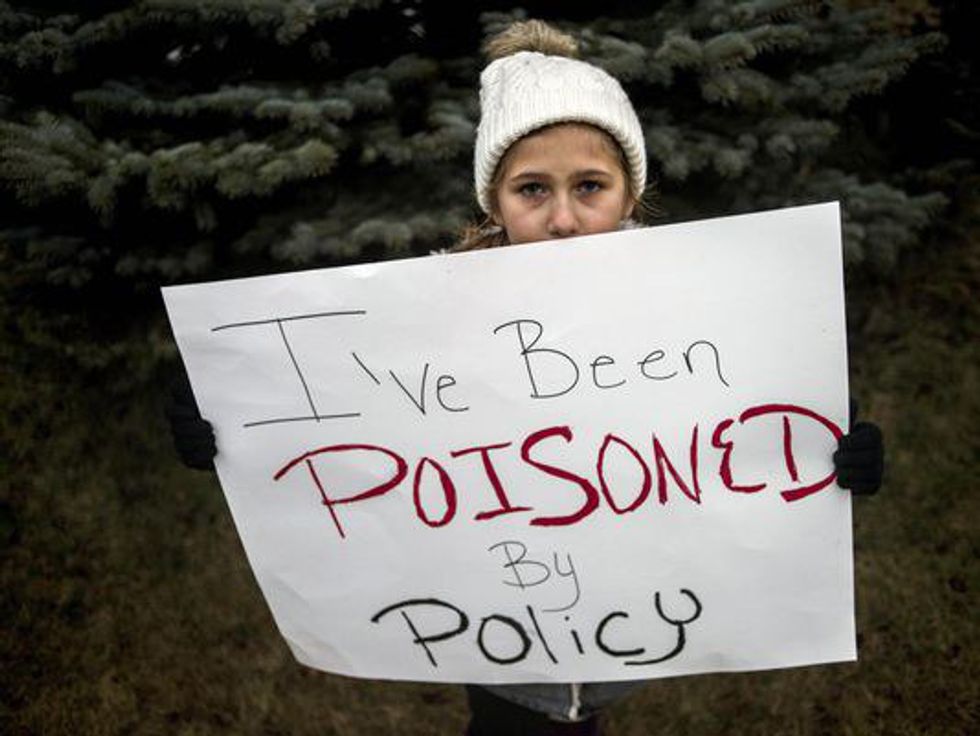On April 24th, 2014 Flint Michigan Officials changed their city's water supply from a Detroit based exchange to the Flint River. From this point on, citizens have been complaining about the quality of their drinking water. Many claimed that their water smelled like sulfur. As the problems worsened, people from the community began attending city hall meetings and events with jugs of brown chalky water. Despite clear evidence of the water being unfit for public consumption, city officials refused to acknowledge the issue plaguing Flint until late 2015. In the past week, emails from state officials have been released that shed further light onto the events of the past year and a half.
1. The decision to change water supply was driven by financial, not health, concerns.
The driving force of Flint's change from Detroit based water to the Flint river was money. The city officials were worried with the rising price of water from Detroit. As with many American cities, Flint was financially unstable and this rising price would have continued to affect the city's budget. From this perspective, the change in water supply is understandable. What is disturbing is that the city officials allegedly had reason to believe the Flint River was less than ideal for consumption. Efforts to create a pipeline to Lake Huron, a better alternative for water, would take until 2016. So the officials new that this change was their least viable for water, but proceeded regardless. What is worrying is that the officials knowingly provided this water to citizens. Decision making based on financial factors rather than pubic health concerns lead to the issue Flint is currently plagued with. Unfortunately, it was the residents of Flint that suffered from this irresponsible change.
2. Evidence was provided almost immediately after the switch to the Flint River.
The first signs of the water being unclean was its smell. Residents began to complain that their water smelled like eggs all the way back in 2014. This smell is indicative of high levels of sulfur. As if that wasn't enough of a problem, residents began having brownish water pour from their faucets in their homes. Outraged by this apparent contamination, citizens began bringing jugs of the disgusting water to city hall meetings. As public outrage continued, city officials released "boil before consumption" ordinances. These warnings demonstrate that the city's officials knew the potential risks of the water they were providing citizens. It is completely unfathomable that officials continued to deny the critiques of residents after such apparent evidence was brought before them on a multitude of occasions. As this crisis continues to unfold, it will be interesting how many, if any, officials resign.
3. Officials belittling the opinions and criticisms of citizens.
In the same vein as the previous point, City officials immediately began talking down the concerns of citizens. Lampooning several early protesters as being oversensitive, officials continued to state that the water was safe. The could not, however, continue to blindly to shoot down citizens' complaints as the problem grew. Rather than addressing the clear issue of the river itself, the powers at be blamed aging pipes for the discoloration of the water. The "boil before consumption" solution was a short term way to assuage the fears of residents. Worried parents claiming that the water was unsafe for consumption were childishly mocked in the emails that surfaced this Wednesday. Yet, these emails contained information that implied the entire water supply contained high levels of lead as well as specific examples of citizens with lead poisoning. Parents were viewed as overzealous and overcautious for not wanting to have their children drink this lead filled water. Elected and appointed officials seemed to not be working with and for their residents, but around them. President Obama weighed in by stating this entire situation was "inexcusable" and will be providing $80 million dollars for Flint to repair its water infrastructure. At least some legislators care about public health.
4. What do residents do in the meantime?
Being that the tap water in Flint is undrinkable, the local government is providing bottled water for citizens. Despite the $80 million allocated to fix this issue, there is the concern of the interim period. Are they going to continue to provide bottled water for the entirety of this process? This crisis has been raging for nearly 2 years, yet it is only just now getting media attention. These citizens have been denied a necessity for this extensive time period and still have long to wait before clean water is provided in their homes. Another glaring issue is lead poisoning. Will the city officials be providing health care to the populace they have poisoned? Despite the solutions beginning to unfold, the citizens still have a painstaking wait for this damage to be undone.
5. Could similar issues be present in other American cities?
How did this crisis occur for nearly 2 years and stay dormant on the national stage until recently? It is not as if there was a lack of protest from the people of Flint. If such a major problem like lead poisoning could fly under the radar for so long, how are we to know that the water quality of other American cities is safe for consumption. Will this massively needed overhaul to the city's water infrastructure start a wave of other cities following suite? For now maybe the best option is to buy a water filter in your house. If you have elected officials similar to those in Flint, you need to monitor the safety of your drinking water because, clearly, they will not be.
























